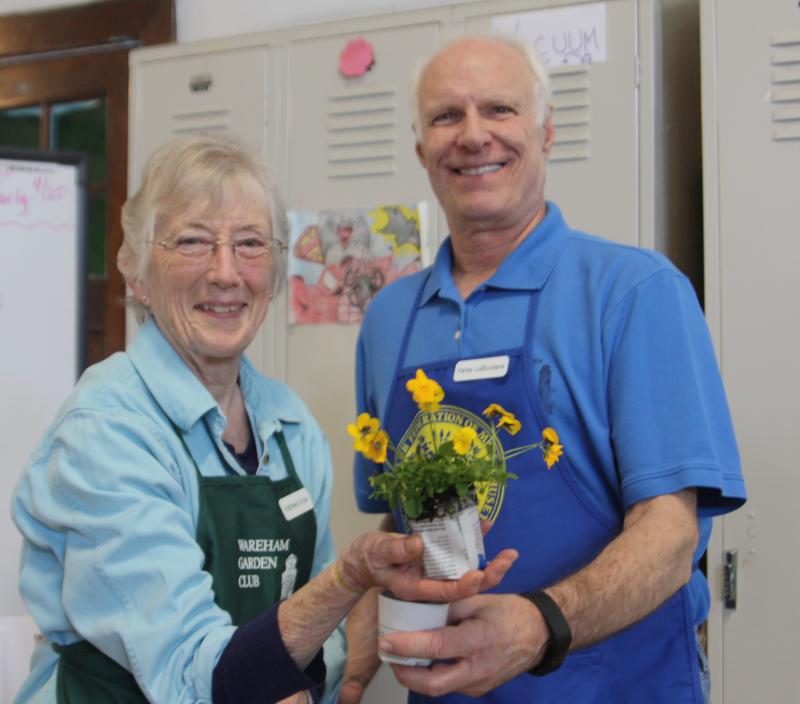'Pollinator Exposition' attracts fans of bees and butterflies
The Wareham Boys & Girls Club was abuzz on Saturday afternoon filled with information on one type of critical critter – pollinators.
Hosted by the Wareham Land Trust, Wareham Garden Club and the Boys & Girls Club, the “Pollinator Exposition” featured a talk and plenty of tips for attracting bees, moths and other insects into yards and gardens. The insects are responsible for fertilizing plants by spreading pollen.
Keynote speaker and entomologist with Plymouth County Extension Blake Dinius explained the role of pollinators in the local ecosystem. He also provided tips on how to attract the insects. He noted there is still much unknown about the insects, including why there’s been a steep decline in their numbers over the past few years. But Dinius said it appears to be a combination disease, pesticide use and habitat disruption.
Some things residents can do to help can be as simple as mowing their lawns less frequently, properly following the label on lawn chemicals or even going so far as to plant a “pollinator garden.”
“You don’t have to be a ‘pollinator crusader’ to make a difference and help restore habitat,” said Dinius. “Little things like raising awareness through posting photos on social media can help get others interested in doing what they can to help preserve habitat.”
Dinius said there’s a lot of information (and misinformation) on what to plant to attract pollinators. But the best advice he said is to plant a variety of local species and see what works.
In addition to Dinius’ talk, visitors could check out butterflies brought by Butterflies of Cape Cod, learn about beekeeping and go home with free violas, courtesy of the Wareham Garden Club.
Other participants included the Massachusetts Department of Agricultural Resources Apiary Program, area beekeepers, Ivyees Honey and the UMass Cranberry Research Station.
















